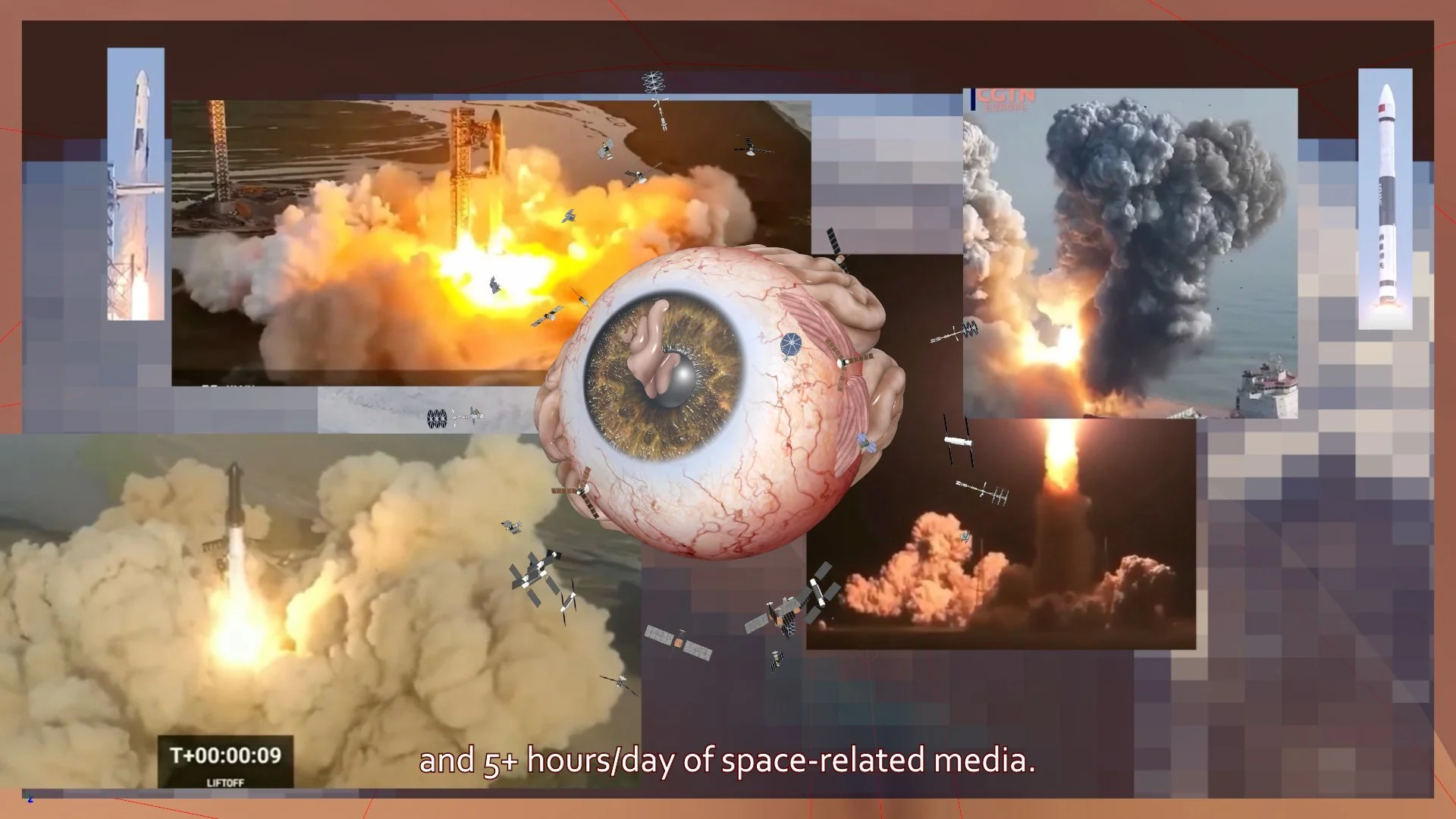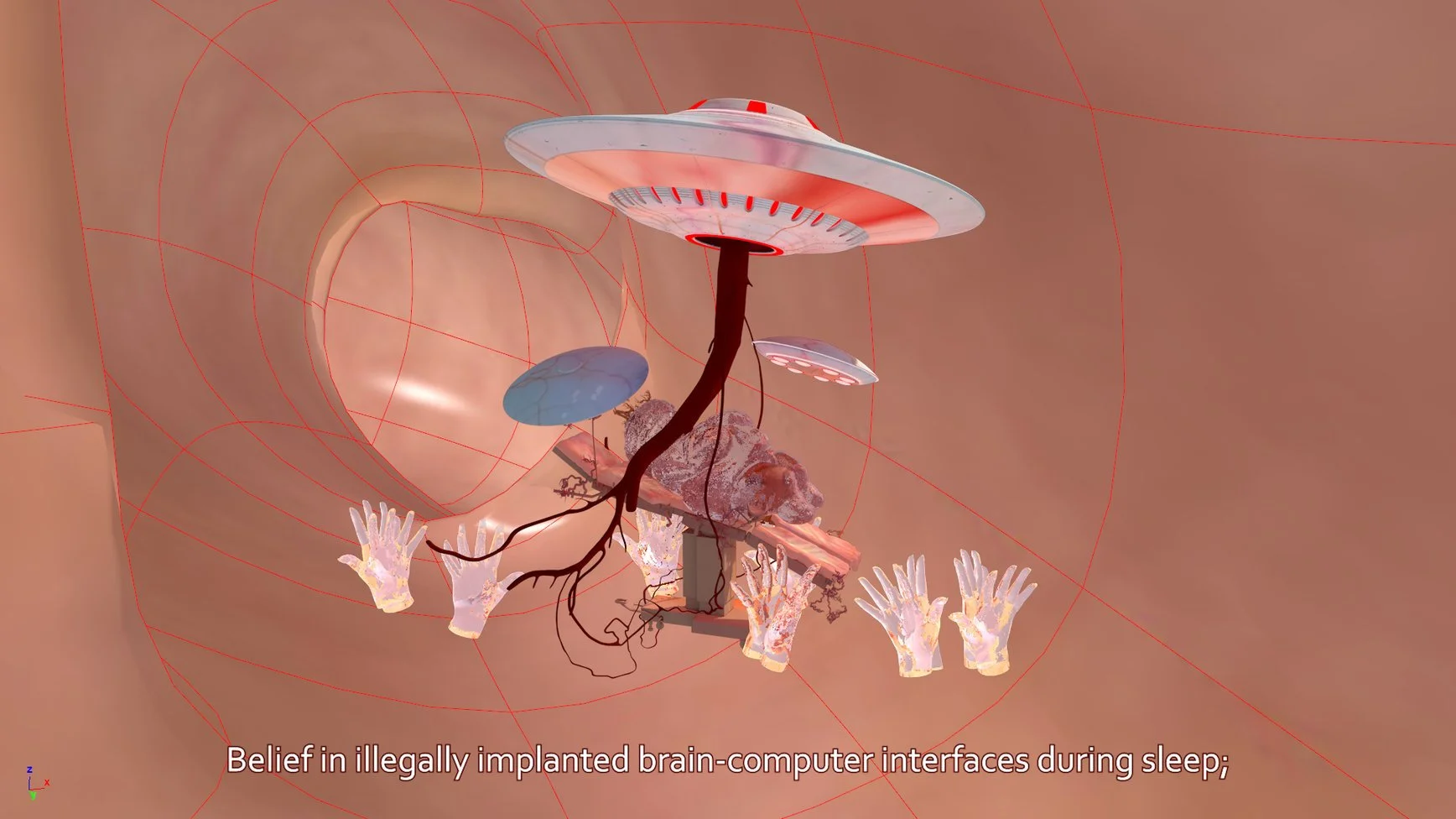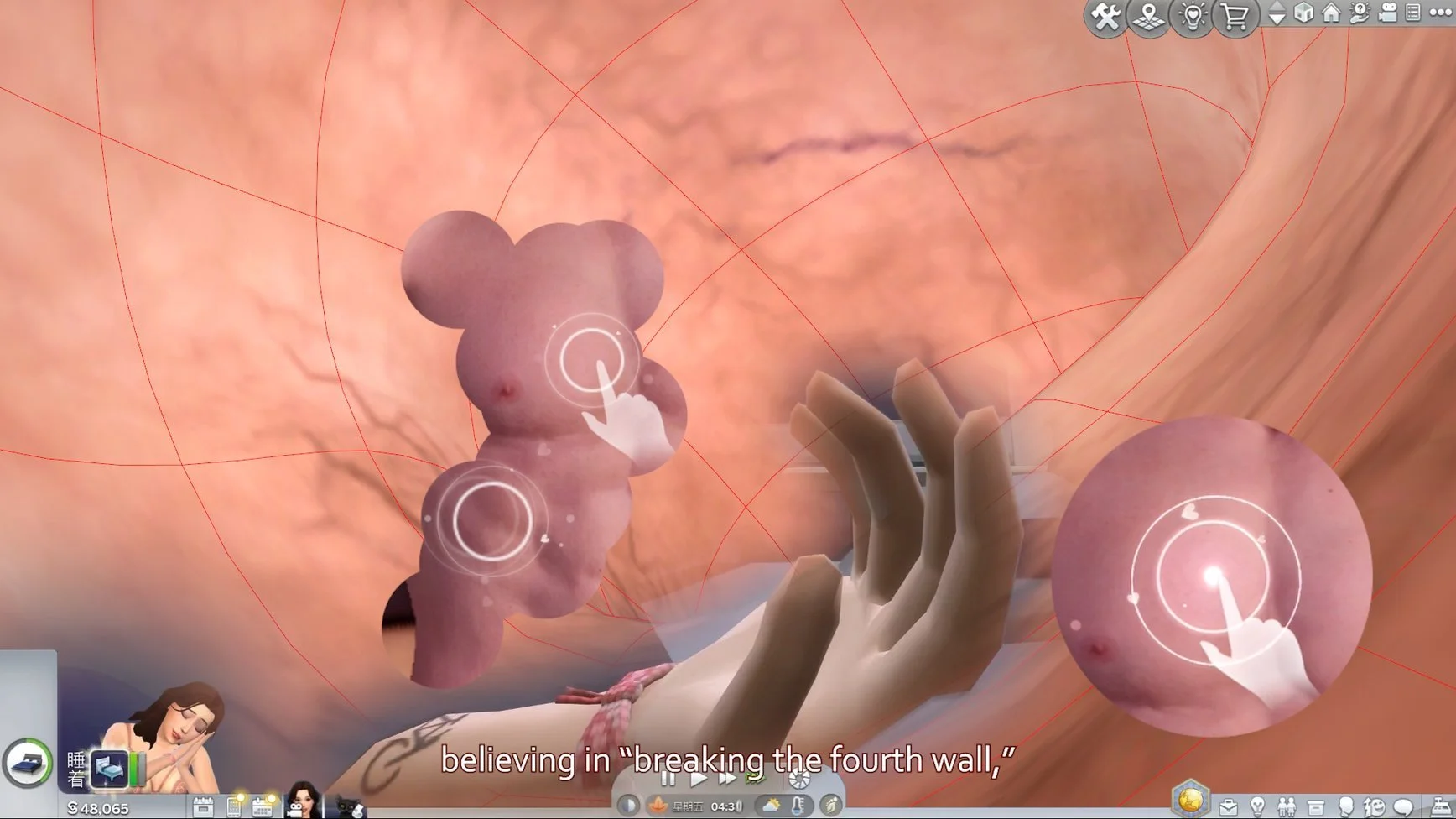Pixel Metabolism, Interface Ulcer
Zhongyao Wang
“Pixel Metabolism, Interface Ulcer” envisions a disembodied, screen-dominated AI future encircled by satellites: virtual imagery is compressed into a tiny pink pill that invades the flesh in reverse, dissolving the boundary between digital and biological. Users become self-experimenting cyborgs, forced to recalibrate touch and bodily perception between ingestion and rejection.
This is a ritual of digital consumption. Pixels dissolve, seep, and parasitize the gut flora; code and flesh converge at the threshold of the interface, forming a new sensory substance. A voiceover, mimicking pharmaceutical instructions, lists the era’s defining syndromes: interface craving disorder, somatic disidentification syndrome, and AI-induced contact anxiety in human-machine interaction.
This “prescription poem” dissects the sovereignty of the body, exposing fissures in technological ethics. Digital experience here is both remedy and toxin. Residual poisons of gender, class, and colonial history drift through the intestinal labyrinth with the pill, forming an inescapable background noise. The fourth wall, eroded by digestive enzymes, collapses into pixel fragments—swallowed, secreted, and screen-bound.


